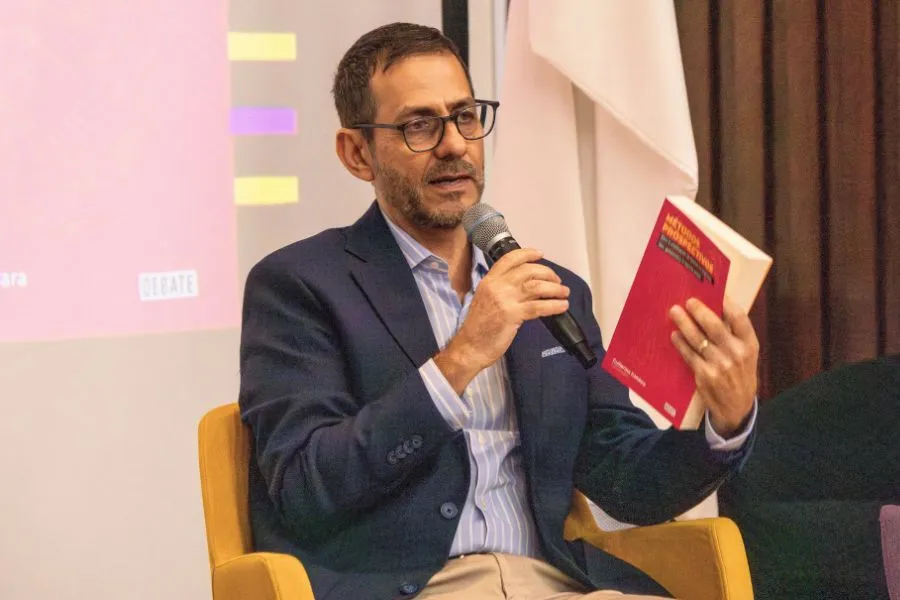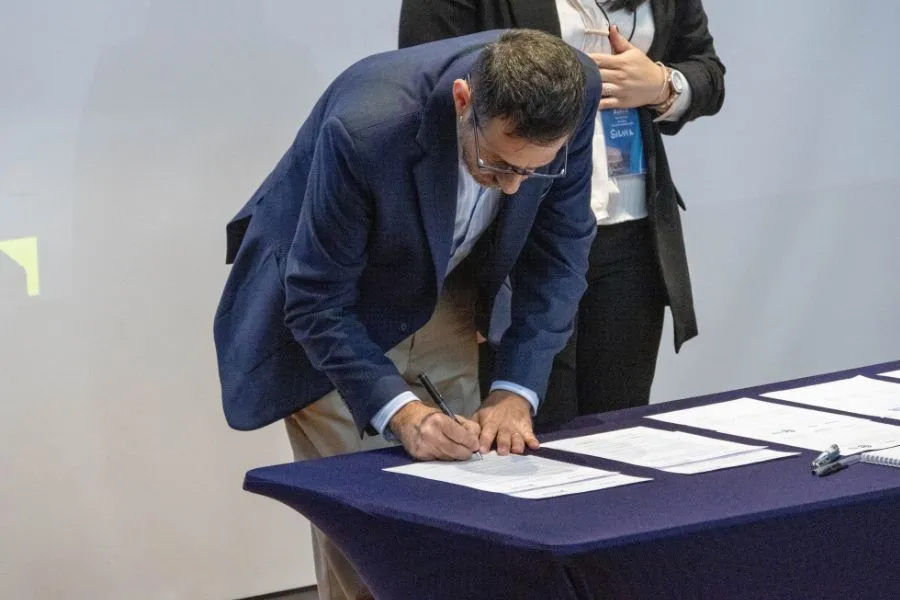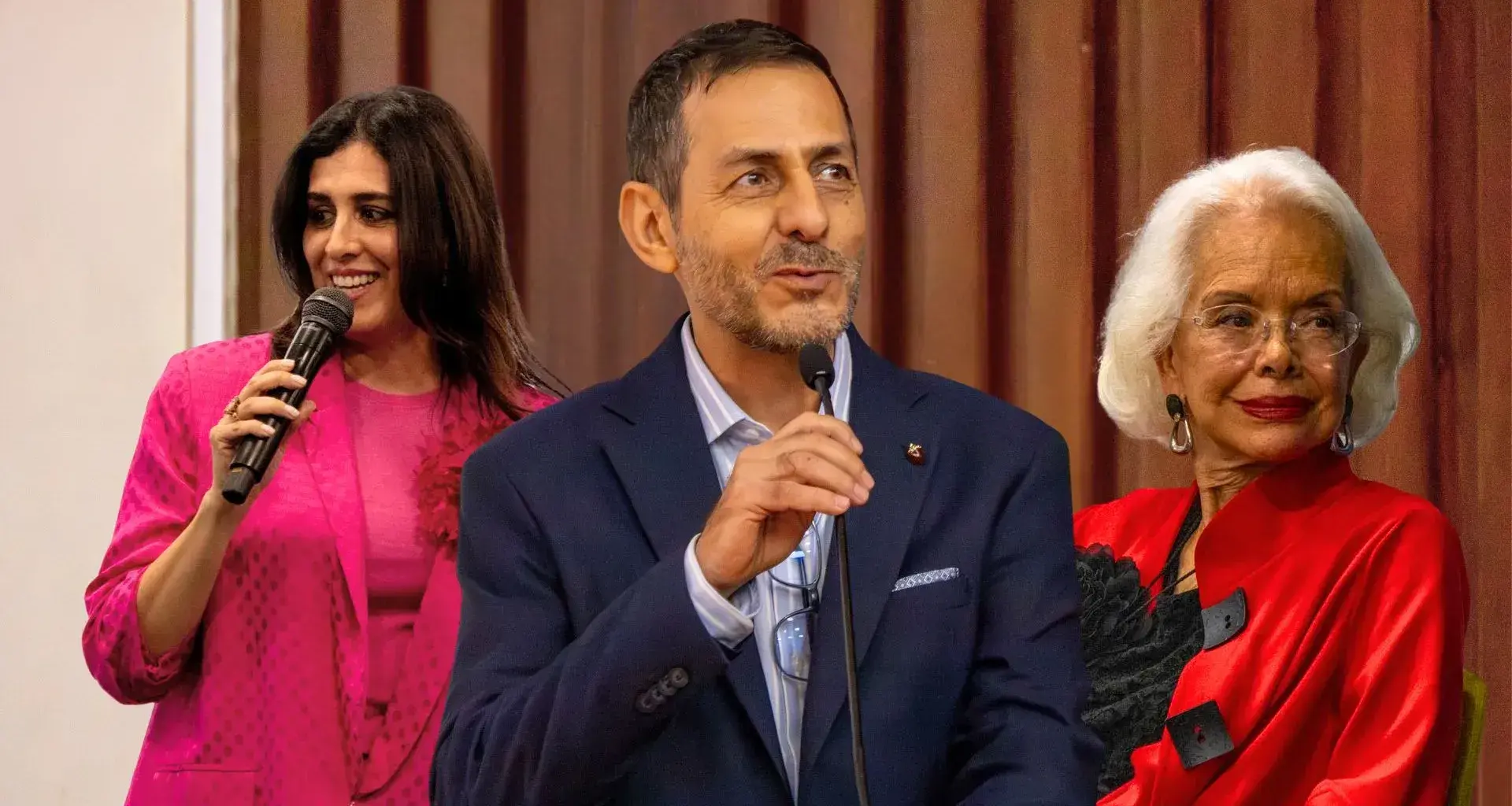Starting this year, Tec de Monterrey professors and collaborators have been leading two international organizationson foresight, the Ibero-American Foresight Network (RIBER) and The Millennium Project (MP).
One of these is futurist Guillermo Gándara, a retired Tec research professor and former director of the Master’s program in Strategic Foresight, who assumed the RIBER presidency.
The other is Yadira Ornelas, leader of the Foresight Design Lab (FDL) at the School of Architecture, Art, and Design (EAAD), who is now the co-chair of the Mexico node of The Millennium Project, originally founded by Mexican futurist Concepción Olavarrieta.
“The change of RIBER’s board of directors is a very important moment not only for the network, but it’s also a milestone for us at Tecnológico de Monterrey,” said Ornelas.
“This transition also paves the way for us to become an open network of foresight and future studies in Ibero-America, redefining the types of memberships and establishing new collaboration agreements,” said Guillermo Gándara.

These appointments were made during the Annual Futures Meeting of the Millennium Project (MP) and the Ibero-American Foresight Network (RIBER), hosted by Tecnológico de Monterrey at the end of September.
Meet the new RIBER President, Guillermo Gándara
Guillermo Gándara, President of RIBER, has focused his work on collaborating with organizations and stakeholders from civil society, government, and business to build sustainable futures, a vision that has permeated RIBER.
According to the researcher, RIBER’s main purpose over the last decade has been to jointly anticipate and explore possible futures in order to generate alternatives that serve the present.
“This has involved a commitment to creating strategies that respond to the challenges of the future, especially in our Ibero-American context, where there are unique vulnerabilities,” the new president said.
For Gándara, one of the priorities for the network revolves around the theme of diversity and the continuous strengthening of ties between members, emphasizing that friendship will continue to be one of the pillars and driving forces of RIBER.
“This transition also paves the way for us to become an open network of foresight and future studies in Ibero-America,” said Guillermo Gándara.
With a background in Regional and Urban Economics, Guillermo Gándara worked as a professor at the Tec for more than 25 years, an institution he recently retired from. He also directed the Master’s program in Strategic Foresight and has published six books on futures studies.
Gándara has been a founding member of RIBER since its inception in 2015.
“I’ve been here since the first moment when José Luis Cordeiro, the outgoing president, made a personal invitation to several futurists, prospectivists, and explorers of the future in Ibero-America,” he recalled.
“When we accepted this invitation, RIBER was born, from this rich panorama of the region, where each member of each country is different, with a different history and different academic background, but we’re all prospectivists,” he said.
Along with Gándara as President and new Executive Director, the new RIBER board also welcomed Verónica Ágredafrom Bolivia, Marcelo Ramírez from Chile, Karelys Abarca from Venezuela, and Marco Moreno from Mexico

Tec futurists at the head of Millennium Project’s Mexico node
Gándara talked about how RIBER grew out of The Millennium Project. He explained that while the latter has more than 70 nodes depending on the partner countries, RIBER is the result of the union of the 15 Ibero-American nodes of The Millennium Project.
However, regardless of the work done and planned for RIBER, its new president indicates that the Mexico node of The Millennium Project not only remains active but also has an agenda of its own.
“During the annual meeting, Concepción (Olavarrieta), who is the founder of the Mexico node, named me and Yadira as the new co-presidents or President and Vice President (of the Mexico node of The Millennium Project),” said Gándara.
The Tec futurists recently appointed as “official” leaders of the Mexico node have been collaborating with this organization for some time. A clear example was Ornelas’ participation during the Futures Summit in 2023.
At that meeting, she had the opportunity to present the work done in Mexico on the stage at Dubai in the United Arab Emirates.
In addition to presenting the research carried out in books such as América Latina al 2050 (Latin America by 2050), Ornelas highlighted the creation of the Futures Design Lab within the Tec and the participation of futurists such as Stuart Candy from the Faculty of Excellence within it.
During the Annual Futures Meeting of The Millennium Project and RIBER, the Tec academics presented the book Métodos Prospectivos 2 (Prospective Methods 2), a work coordinated by Guillermo Gándara and published by the Futures Design Lab and the Tec futurists group with the publishing house Penguin Random House.

The new challenge: getting younger generations interested in foresight
Finally, the expert consultant in futures study methodologies highlighted how both RIBER and the Mexican node ofMillennium Project have a common vision under their leadership, which is about attracting more young people to prospective studies.
“The change of RIBER’s board and planning for following years means we’re increasingly concerned about young people, specifically in getting young people interested in the discipline,” said Gándara.
“We want to bring the tools of futures exploration or futures thinking to young people in general and train and develop new generations in this discipline,” he added.
As part of this strategy and thinking about the importance of generational change, both Gándara and Ornelas have highlighted the use of gamification and technology in teaching prospective methodologies.
“Teaching these methods by solving challenges, games, and riddles playfully helps them to understand and review these concepts in a fun way, especially if you use the technologies young people today are already active in,” Gándara said.
Futurists exemplify this process through the “Future Exploration” Escape Room, a Tec project designed for the Strategic Foresight class based on a collaborative virtual reality that tests students through role-playing.
In one test group, according to Ornelas, it was found that 57% of the students who participated in the escape room improved their grades, with 29% staying the same, while the 14% who did not participate got worse grades.
YOU MAY ALSO BE INTERESTED IN:





